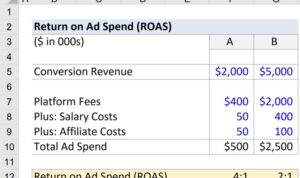Marketing campaigns are the lifeblood of business promotion and growth. Dive into the realm of successful campaigns, key elements, and diverse strategies in this exciting journey filled with insights and examples.
From defining target audiences to measuring success, this exploration will equip you with the knowledge to create impactful marketing campaigns that resonate with your audience.
Importance of Marketing Campaigns

Marketing campaigns play a crucial role in promoting products or services to the target audience. They help businesses effectively reach their potential customers and create brand awareness. Without successful marketing campaigns, businesses may struggle to stand out in a competitive market.
Increased Brand Awareness
Marketing campaigns such as Apple’s “Get a Mac” or Nike’s “Just Do It” have had a significant impact on brand awareness. These campaigns not only increased sales but also created a strong brand identity that resonates with consumers. By consistently delivering a powerful message through various marketing channels, businesses can build a loyal customer base and stay top of mind in the market.
Effective Communication
Marketing campaigns act as a bridge between businesses and their target audience, facilitating effective communication. Through engaging content, businesses can convey their unique selling propositions and connect with customers on an emotional level. By understanding consumer behavior and preferences, businesses can tailor their marketing campaigns to resonate with the audience and drive engagement.
Market Positioning
Successful marketing campaigns help businesses position themselves in the market and differentiate from competitors. By highlighting key features and benefits, businesses can showcase their value proposition and attract potential customers. Through strategic messaging and creative storytelling, businesses can influence consumer perceptions and establish a strong market presence.
Drive Sales and Revenue
Ultimately, marketing campaigns are designed to drive sales and revenue for businesses. By generating interest, creating desire, and prompting action, businesses can convert leads into customers and achieve their sales targets. Through targeted marketing campaigns, businesses can maximize their return on investment and achieve sustainable growth in the market.
Elements of a Successful Marketing Campaign

In order to ensure the success of a marketing campaign, there are several key elements that need to be considered. These elements play a crucial role in shaping the campaign and determining its effectiveness.
Role of Market Research
Market research is essential in shaping marketing campaigns as it provides valuable insights into consumer behavior, preferences, and trends. By conducting thorough market research, companies can better understand their target audience and tailor their campaigns to meet their needs and interests. This helps in creating more targeted and personalized marketing messages that resonate with consumers, ultimately leading to higher engagement and conversion rates.
Clear Goals and Objectives
Setting clear goals and objectives is vital for the success of a marketing campaign. By defining specific and measurable goals, companies can track the progress of their campaigns and determine their effectiveness. Clear objectives also help in aligning the efforts of the marketing team and ensuring that everyone is working towards a common goal. Additionally, well-defined goals provide a roadmap for the campaign and help in making strategic decisions throughout the process.
Types of Marketing Campaigns
In the world of marketing, there are various types of campaigns that companies can utilize to reach their target audience and achieve their business goals. Let’s take a look at some of the most popular types of marketing campaigns and compare their advantages and disadvantages.
Social Media Campaigns
Social media campaigns involve using platforms like Facebook, Instagram, Twitter, and LinkedIn to promote products or services. These campaigns can reach a large audience quickly and are relatively cost-effective. However, they require constant monitoring and engagement to maintain effectiveness.
Email Campaigns
Email campaigns involve sending promotional emails to a list of subscribers. This type of campaign is great for personalized communication and building customer relationships. However, they can be seen as intrusive and may end up in the recipient’s spam folder if not done correctly.
Influencer Campaigns, Marketing campaigns
Influencer campaigns involve partnering with social media influencers to promote products or services. This type of campaign can help reach a specific target audience and build trust with consumers. However, it can be costly to work with influencers, and the results may not always be guaranteed.
Examples of Companies
– Social Media Campaign: Nike’s “Just Do It” campaign on Instagram reached millions of users and increased brand awareness.
– Email Campaign: Amazon’s personalized email recommendations have led to increased sales and customer loyalty.
– Influencer Campaign: Fashion Nova’s collaboration with popular influencers has helped the brand gain a large following on social media.
Creating a Marketing Campaign Strategy: Marketing Campaigns
When it comes to creating a marketing campaign strategy, there are several key steps that need to be taken to ensure its success. From defining your target audience to measuring key performance indicators, each step plays a crucial role in the overall strategy.
Defining Target Audience and Messaging
To kick things off, it’s essential to clearly define your target audience. Understanding who you are trying to reach will help tailor your messaging and communication strategies to resonate with them effectively. Your messaging should be crafted in a way that speaks directly to your target audience’s needs, pain points, and desires. This personalized approach will help establish a deeper connection with your audience and increase the chances of conversion.
Measuring Success through KPIs
Once your marketing campaign is live, it’s important to track its performance through key performance indicators (KPIs). These KPIs will help you measure the success of your campaign against the goals you’ve set. Common KPIs include conversion rates, click-through rates, return on investment (ROI), and customer acquisition cost (CAC). By analyzing these metrics, you can gain valuable insights into what’s working well and what areas need improvement, allowing you to optimize your campaign for better results.





